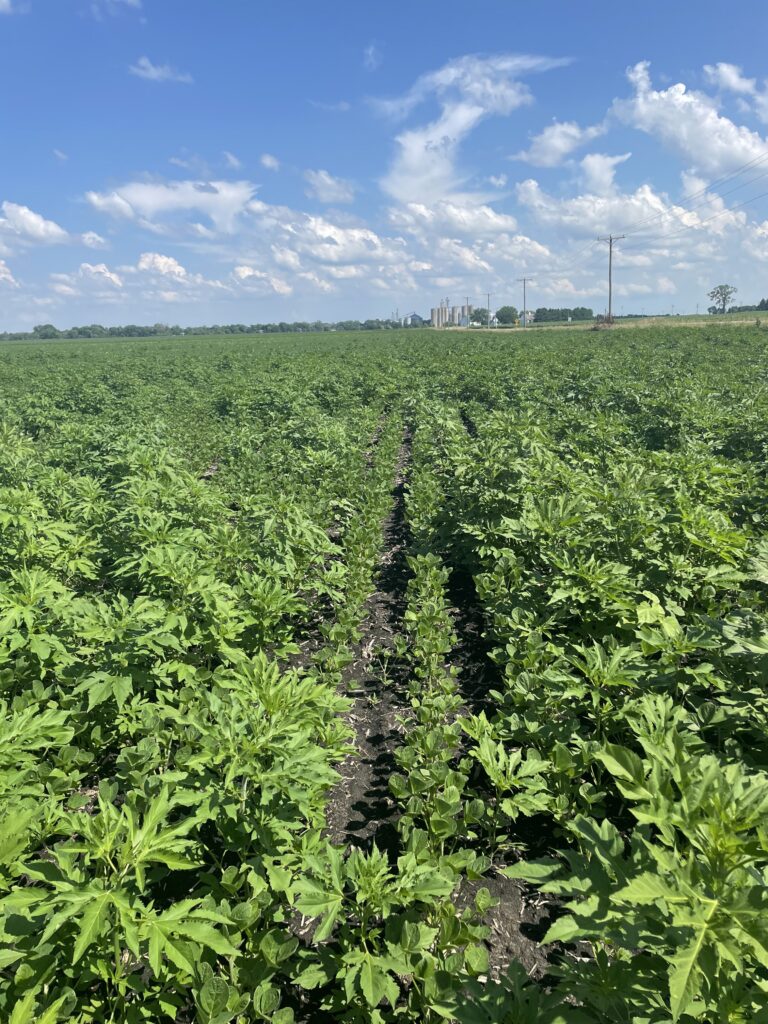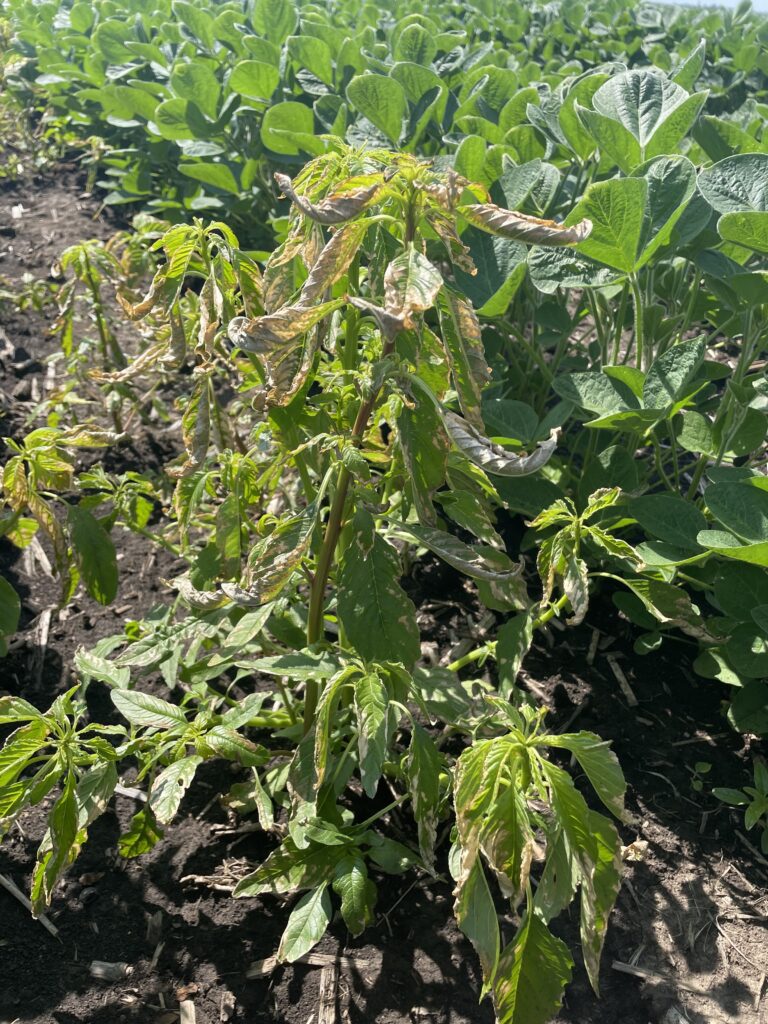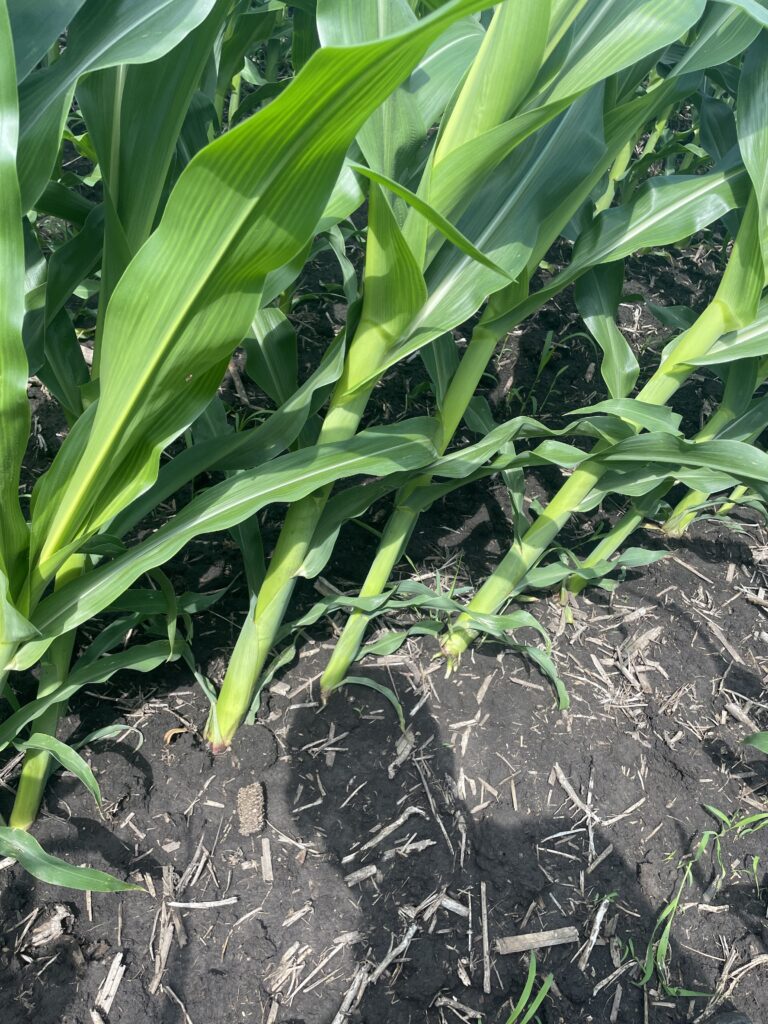Archive
If you find yourself wondering what happened when, look no further than the Crop Report Archive. We’ve compiled past reports, listing the most recent first. You can search by Region, Month, or Reporter to find information.



A light shower last weekend and nearly an inch of rain in the first couple of days this week took the edge off for the crop in most of my immediate area. The high temperatures and high humidity are pushing the corn along pretty fast now. Visible plant stress is minimal, especially after the shot of rain we got. Some spotty hail managed to poke a few holes in the beans in certain areas, but the corn is largely unscathed. Most soybean fields have now received their post-emergent herbicide passes—the fields that haven’t are pretty obvious from the road. Farmers and retailers are working diligently to get those taken care of, as we’ll be into corn pollination and fungicide season before we know it.
Scattered showers seem to be the standard forecast most days. The high temperatures and humidity have pushed heat indexes into the low 100s, making for some uncomfortable field-walking conditions—but the crops don’t seem to mind! Slightly cooler temperatures are on the way…
I received 0.9” at home early this week and some areas around me received another 0.2-0.4” mid week.
Soil moisture is adequate to slightly wet at the time of this report.
The first round of post emergent herbicide applications are nearly wrapped up in soybean fields. Applicators have had to dodge the pop up showers when they can. Corn is rapidly growing now.
Most fields I’ve been in are staging at V5-V10 with first flowers starting to show up in the earlier fields.
Most of the corn I’ve been in is stages from V9-V12 and is anywhere from hip to face high.
The few wheat fields I’ve seen in my area are reaching maturity and will be ready for harvesting the next week or two.
I’ve observed some rootworm damage in corn and the Japanese beetles are beginning to show their presence in the corn and the soybeans. At this point they are more of an annoyance than an agronomic issue.
Waterhemp has been on a full court press in soybeans. By and large, the herbicide programs are holding their own but there are those fields that will be problematic.
Overall, observed disease pressure is low. I’ve seen some very minor Septoria and bacterial blight in soybeans, and mild anthracnose leaf blight in wetter areas of corn. As we get closer to corn pollination, remember that scouting for foliar diseases becomes critical for making informed decisions about whether—or when—a fungicide application is needed.
Very minor and very spotty hail damage can be seen in some soybeans. Occasionally finding some wind blown, leaning corn if a brief gusty thunderstorm passed through but I haven’t seen any green snap.
Soybean fields that had a cereal rye cover crop seemed to get off to a slower start but have done a pretty good job of catching up now. The overall weed pressure in these fields appears to be less than in the beans around them that didn’t have the cover crop.
For farmers intending to plant cover crops this fall, be sure to get your seed orders placed with your dealers as soon as possible.


 and then
and then